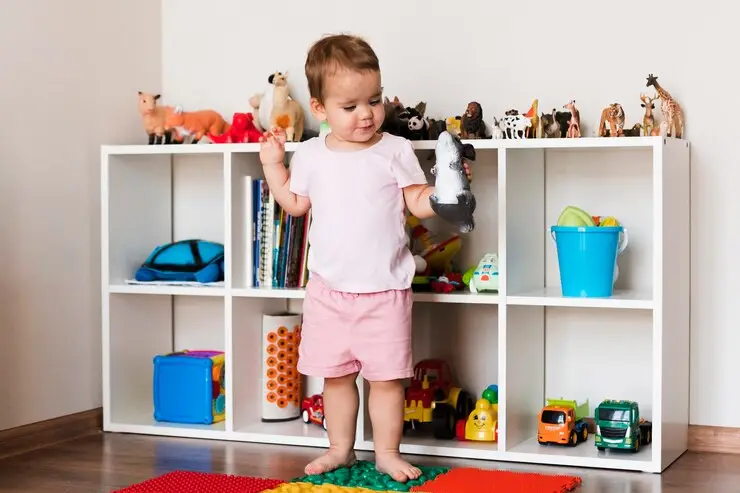Crying Baby
Understanding a Crying Baby: Expert Insights from Doctors in New Jersey and Staten Island
Crying is a baby’s primary way of communicating their needs and discomforts. For new parents, deciphering the cause of their baby’s crying can be a daunting task. Understanding the reasons behind a baby’s tears is crucial for ensuring their well-being and providing comfort. Let’s explore some of the common causes and remedies for a crying baby, with insights from pediatric experts in New Jersey and Staten Island.
1. Hunger or Thirst
One of the most common reasons babies cry is due to hunger or thirst. Newborns have small stomachs and require frequent feedings. Dr. Susan Parker, a pediatrician at Parker Pediatrics in New Jersey, explains, “Babies often cry to signal they are hungry, even after just a short period since their last meal. As they grow, the timing between feedings may increase, but in the early months, regular feedings are crucial.”
2. Diaper Discomfort
A wet or soiled diaper can lead to discomfort and irritability in babies. Pediatricians suggest that parents check their baby’s diaper regularly. Dr. Carlos Gonzalez from Island Pediatric Associates in Staten Island advises, “A clean and dry diaper is essential for preventing skin irritation, which can contribute to crying. Sometimes, babies may cry simply because they dislike being in a wet or dirty diaper, and a quick change can soothe them.”
3. Sleepiness or Fatigue
Babies, especially in their first few months, sleep a lot. However, they may have difficulty falling asleep or staying asleep due to discomfort or overstimulation. Dr. Rebecca Johnson, a pediatric sleep specialist at Sleep Tight Pediatrics in New Jersey, explains, “Newborns and infants need a lot of rest, and overstimulation or discomfort can cause them to cry when they are overly tired.”
4. Gas or Colic
Many babies experience discomfort from gas buildup or colic, which can make them fussy and cry for long periods. Dr. Elizabeth Martinez from Staten Island Pediatrics highlights, “Colic is common in infants and typically appears in the first few weeks of life. It’s characterized by excessive crying, often in the late afternoon or evening. While the cause of colic is not entirely understood, it may be linked to gastrointestinal discomfort.”
5. Illness or Injury
If a baby is crying more than usual and seems to be in pain, it could be a sign of illness or injury. A fever, ear infection, or teething pain can all cause discomfort. Dr. Andrew Collins, a pediatrician with Collins Family Practice in New Jersey, advises, “If your baby’s crying is accompanied by other symptoms like fever, vomiting, or a noticeable change in behavior, it’s important to seek medical attention.”
6. Need for Comfort or Attention
Sometimes, babies cry simply because they need comfort, affection, or attention from their parents. Dr. Melanie Smith, a pediatric expert at Staten Island Family Pediatrics, says, “Holding, rocking, or soothing a baby with a gentle voice can help them feel secure and calm down. Babies thrive on physical contact, and their crying may be a way to express their need for closeness.”
7. Environmental Factors
Noise, bright lights, or changes in temperature can also irritate a baby, causing them to cry. Dr. Gregory Johnson, a pediatrician at New Jersey Pediatric Associates, explains, “Babies are very sensitive to their surroundings. Ensuring that the room is quiet, calm, and comfortably warm can help minimize crying episodes caused by environmental stressors.”
When to Seek Medical Help
While crying is typically a normal part of a baby’s development, parents should not hesitate to seek help from a doctor if the crying seems excessive or is accompanied by other symptoms such as fever, vomiting, or changes in behavior.
Parents in New Jersey and Staten Island can consult local pediatricians to get personalized advice for their babies. Doctors like Dr. Susan Parker, Dr. Carlos Gonzalez, and Dr. Rebecca Johnson are available for consultations to help parents navigate the challenges of dealing with a crying baby.
Conclusion
While crying is an unavoidable part of parenting, understanding its possible causes can help parents provide the right care and comfort for their baby. By staying informed, seeking expert advice from pediatricians in New Jersey and Staten Island, and responding with patience and empathy, parents can navigate this stage of their child’s development with confidence.
For more personalized advice, parents are encouraged to schedule a consultation with their pediatrician, whether it’s at Parker Pediatrics, Island Pediatric Associates, or Staten Island Family Pediatrics.


